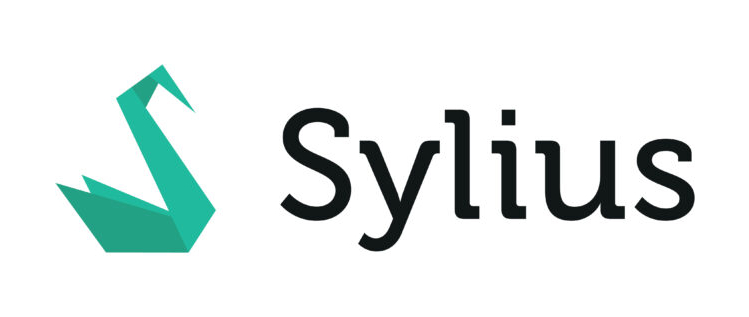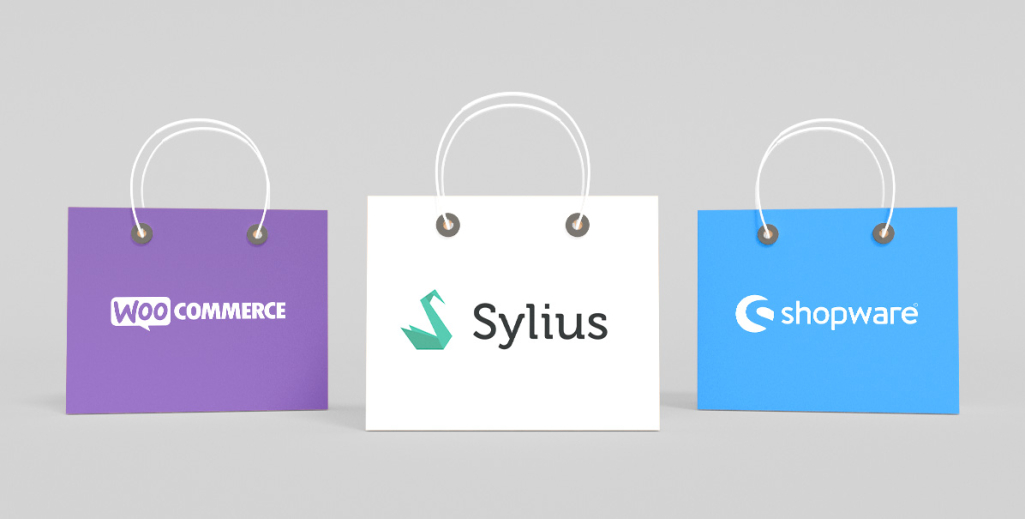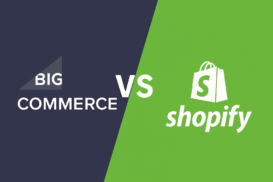Greetings! I'm Aneesh Sreedharan, CEO of 2Hats Logic Solutions. At 2Hats Logic Solutions, we are dedicated to providing technical expertise and resolving your concerns in the world of technology. Our blog page serves as a resource where we share insights and experiences, offering valuable perspectives on your queries.
Choosing the wrong ecommerce platform can cost your business thousands in lost revenue and opportunities. With Sylius, Shopware, and WooCommerce competing, making the right choice seems difficult. This guide breaks down each platform’s strengths, weaknesses, and unique capabilities. To help you select the right ecommerce platform for your business.
If you need expert assistance in choosing the right platform, get a free consultation to gain clarity.
Overview of Sylius

Sylius is an eCommerce application built on Symfony framework and it is an open source application. It is designed for efficient ecommerce stores, it is flexible and scalable and provides a good starting point for online stores of high complexity. Sylius focuses on the headless approach that enables companies to build individual storefronts and connect them with different front-end technologies.
Key Features and Benefits
- Headless architecture: Others allow customization as well as the ability to integrate applications more freely.
- Open-source: Enables total control of the platform and is a plus in the development of the community.
- Symfony framework: Delivers a stable tested, and professional environment for the growth and evolution of software.
- API-first approach: Facilitates linking with the other systems and applications that are normally required by an organization.
- Strong focus on performance and scalability: It can also effectively manage high traffic and an enormous number of products.
Target Audience
Sylius is more focused on developers and companies that want a very flexible and efficient solution for their eCommerce. Specific to its use by enterprises, B2B firms, and organizations with intricate product portfolios or special organizational requirements.
Pros and Cons
Pros:
- Highly flexible and customizable
- Has good performance and grows as per your needs.
- A community of experienced developers is available
- API-first approach for seamless integrations
Cons:
- Development expertise is required for implementation
- A little bit difficult to learn when compared with other platforms
- Limited out-of-the-box features
Sylius Pricing and Licensing
This platform is open-source which means that it can be accessed freely without charge and it is developed freely. But there can be some expenses concerning the development, customization, hosting or any other supporting services to the businesses.
Overview of Shopware
Shopware 6 is one of the widely used open-source eCommerce platforms and has a particularly tight-knit user base in Europe. It has many features and suits the needs of business by being flexible and easily scalable. Shopware is easy to navigate has features easy to customize and is best suitable for the variety of online shops.
Key Features and Benefits
- Open-source: Provides Allows freedom and control over the platform
- User-friendly interface: Streamlined store management
- Strong focus on B2C commerce: Facilities designed specifically to meet the needs of business-to-consumer transactions, enhancing the shopping experience for individual customers and streamlining direct sales.
- Extensive customization options: Adaptable to various business needs
- Headless commerce capabilities: Enables integration with different front-ends.
Target Audience
Shopware can be of interest to small to medium-sized businesses, enterprises and B2C companies. Hence, it is ideal for companies that require a middle-ground between the degrees of both simplicity and flexibility. If you’re looking to leverage Shopware for your business, you might want to consider professional Shopware development services to tailor the platform to your specific needs.
Pros and Cons
Pros:
- User-friendly interface
- Strong B2C features
- Extensive customization options
- Active community and ecosystem
- Headless commerce capabilities
Cons:
- May have limitations for complex, high-traffic stores
- Some features might require additional plugins or development
Shopware Pricing and Licensing
Shopware comes in both open-source and licensed depending on the features you want to use on your store. The basic version of the software and related programming is available in open-source form, but there are enhanced facilities for those willing to purchase the other editions. It uses the model of pricing as per the selected package and the features along with it. If you’re considering implementing Shopware for your business. You can hire a Shopware developer to ensure that you get the most out of the platform and address any specific customization or development needs.
Overview of WooCommerce
WooCommerce is an open-source ecommerce plugin developed primarily for WordPress and is used by many markets. It converts the WordPress website to an eCommerce-enabled store. Evaluating the WooCommerce plugin in such aspects, one can conclude that it leverages a great deal of advantages coming from its positioning as a part of the WordPress environment and resources.
Key Features and Benefits
- Integration with WordPress: It helps you manage your content while at the same time providing an avenue to sell your products on online shopping.
- Open-source: Abilities: It provides an opportunity to achieve flexibility and customization.
- Extensive plugin ecosystem: Solutions for the requirements of e-commerce
- User-friendly interface: Also, they are relatively simple to install and administer.
- Scalability: Flexible and can accommodate businesses of all sizes
Target Audience
WooCommerce caters to a wide range of businesses, from small online shops to established enterprises. It is especially for those who already work in WordPress, or who searching for a platform for building a site, which has a lot of supporters.
Pros and Cons
Pros:
- Easy to use and install
- Large and active community
- Extensive plugin ecosystem
- Tight integration with WordPress
- Scalable to accommodate growth
Cons:
- Traffic density could be a problem for some stores that need high performance.
- Security comes from WordPress and also the extra plugins
- May need to find premium plugins to add more functionality.
WooCommerce Pricing and Licensing
WooCommerce itself is free. However, the business will be charged for web hosting, domain, and the chosen theme, and there could be extra costs for the premium plugins or extensions.
Comparison
| Feature | Sylius | Shopware | WooCommerce |
| Headless architecture | Yes | Yes(optional) | No |
| Open-source | Yes | Yes(Community & Enterprise) | Yes |
| Target audience | Developers, Enterprises | SMBs, B2C, Enterprises | SMBs, Startups, Bloggers |
| Ease of use | Low | Medium | High |
| Scalability | High | High | Medium(with optimization) |
| Community & support | Growing | Active | Very Large |
| Integration capabilities | API-first | Headless Plugins | Plugins |
| Security | Developer responsibility | Regular updates | Relies on WordPress security |
Implementation Issues with Platforms
| Platform | Implementation Risks |
| Sylius | Customization is complex, cost is high, few plugins, small developer community. |
| Shopware | Limited global support, costs high as you grow, the learning curve is steep and time-consuming setup. |
| WooCommerce | Performance issues, high hosting needs, plugin dependent, update conflicts. |
Factors to Consider When Selecting a Platform
When selecting an eCommerce platform, several factors should be considered:
Business size and goals: Choose the platform that can handle your current and future business needs.
Budget: Cost is a major factor and initial setup, ongoing fees, and potential for additional expenses.
Product catalogue: The platform should be able to handle your product range efficiently.
Technical expertise: Evaluate your team’s technical capabilities and the platform’s complexity.
Scalability: The platform should be able to grow with your business.
Design and customization: Ensure the platform offers flexibility to create a unique storefront.
Payment and shipping options: Verify compatibility with your preferred payment gateways and shipping carriers.
SEO and marketing tools: Consider built-in SEO features and integration with marketing platforms.
Customer support: Evaluate the quality and availability of customer support.
Security: Prioritize a platform with robust security measures to protect customer data.
Technical Comparison: Sylius, Shopware & WooCommerce
| Aspect | Sylius | Shopware | WooCommerce |
| Framework | Symfony | Symfony | WordPress |
| Architecture Type | Headless, Modular | Headless, Event-Driven | Plugin-Based |
| API Approach | 100% API-First | REST-API Enabled | REST-API Support |
| Scalability | High | High | Medium |
| Customization Complexity | High | Medium | Low |
Use Cases for Sylius, Shopware & WooCommerce
Sylius: Ideal for large enterprises with complex product catalogues and a development team.
Shopware: Suitable for B2C businesses and those seeking a balance between flexibility and ease of use.
WooCommerce: Best for small to medium-sized businesses, bloggers, and those already using WordPress.
Conclusion
Now that you’ve explored the comparison between Sylius, Shopware, and WooCommerce, you should have a clearer idea of which platform suits your business needs. Evaluate key factors like your business size (e.g., small startup vs. enterprise), budget, and technical expertise to make an informed choice. Prioritize a platform that supports your long-term growth and scalability. For personalized guidance and implementation support, consult with an experienced e-commerce development company.

Related Articles







